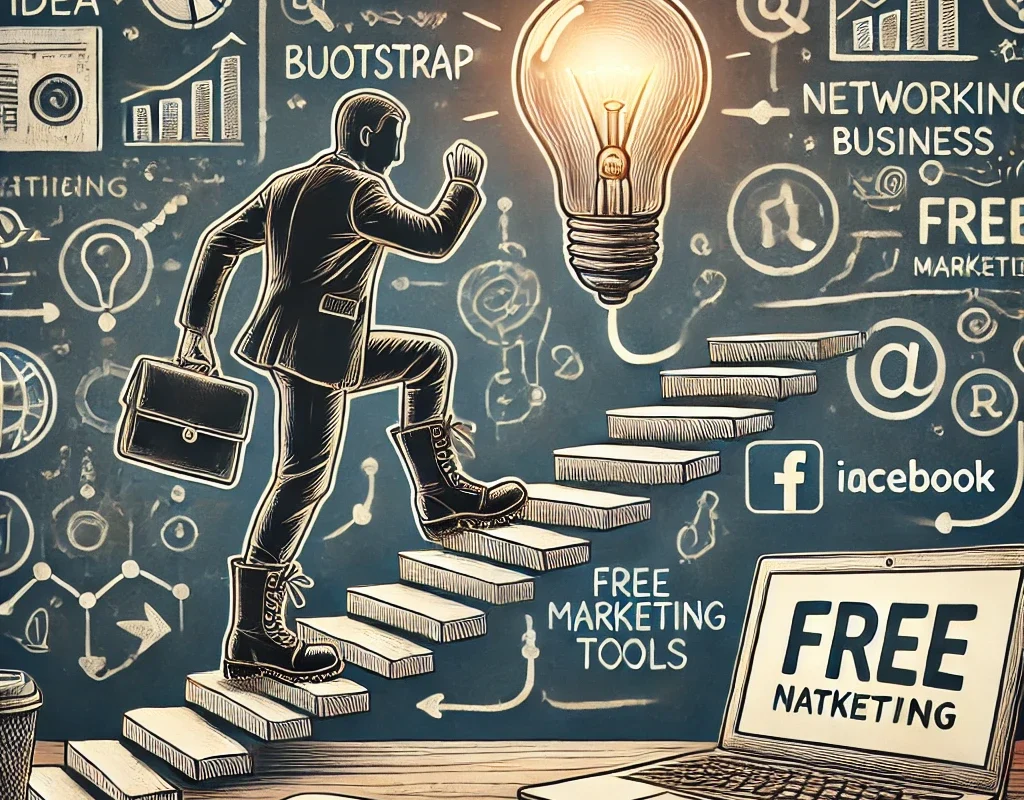Starting a business with no money may sound like an impossible task, but with the right strategy and mindset, it is entirely achievable. In fact, many successful entrepreneurs have launched thriving ventures with little to no initial capital. Whether you’re driven by a passion, looking for a side hustle, or trying to escape the traditional 9-5 grind, understanding how to leverage your skills, network, and free resources is key to starting your entrepreneurial journey.
One of the main principles behind starting a business with no money is bootstrapping. This approach requires an individual to rely on personal effort, using existing skills and assets, as well as strategically reinvesting early profits into the business for growth. Bootstrapping also encourages creative problem-solving, which helps entrepreneurs think outside the box and find alternatives to expensive business operations.
The journey may be challenging, but the rewards can be significant. With persistence, frugality, and a resourceful approach, launching a business without capital is not only possible—it’s happening all around us.
Identifying the Right Business Idea
One of the first steps to starting a business with no money is choosing the right business idea. It’s crucial to focus on a business model that aligns with your skills and can be started with minimal financial input. Many successful businesses have begun as side hustles or passion projects, only requiring time and effort rather than significant capital.
Consider ideas like consulting, online tutoring, freelance writing, or a service-based business. These ventures primarily rely on expertise and personal skills rather than expensive resources. Think about what value you can offer customers, whether through solving a problem, providing a service, or offering unique insights that they would be willing to pay for.
A great way to start this process is by brainstorming your interests, experiences, and current skill set. A deep dive into your talents and passions can often reveal hidden opportunities for business ideas that don’t require substantial investment.
Leveraging Skills and Resources
When starting a business without money, one of your most valuable assets is your personal skill set. Your expertise, knowledge, and experiences are what you can immediately leverage to provide value to others. Whether it’s technical expertise, creative skills, or professional services, turning these into marketable offerings is the first step to generating revenue.
But beyond your personal skills, look at the resources you already have at your disposal. For example, do you have a computer and internet access? You can launch a freelance writing or design business. Do you have a car? Consider starting a delivery service or rideshare business. Maximize the tools you already own to minimize startup costs.
Additionally, your personal network is an underutilized resource. Reach out to friends, family, and former colleagues for support, advice, or even potential customers. Networking is essential when you don’t have money, as it opens doors to new opportunities, collaborations, and partnerships that can help you move forward with your business.
Bootstrapping Your Way to Success
Bootstrapping is the process of building and growing a business without relying on outside funding, using personal savings or generating revenue from initial customers to keep the business afloat. It requires a lot of creativity, discipline, and smart decision-making.
Start small. If your business model allows, focus on offering services or products that cost very little to produce. Service-based businesses, for example, require minimal upfront costs compared to product-based ones. As your business generates revenue, you can reinvest it into growing the venture, purchasing better equipment, hiring talent, or scaling operations.
For those who dream of opening a brick-and-mortar store or launching a product line, bootstrapping might mean starting online or using pre-orders to fund production. It’s about taking small, manageable steps forward, learning as you go, and being cautious with every expense.
Service-Based Businesses
Service-based businesses are perfect for individuals looking to start a business without money. The primary resource in a service-based business is often time and expertise, not expensive inventory or manufacturing processes. Businesses like consulting, coaching, graphic design, digital marketing, and personal training can all be initiated with almost no capital.
These businesses also have the advantage of being able to generate revenue quickly. Once you secure a client or contract, you can immediately begin earning money, which can be reinvested back into the business for growth. Additionally, many service-based businesses can be operated from home, which reduces the need for overhead costs like office space or equipment.
Start by identifying your marketable skills. What services can you provide that are in demand? Then, create a simple but professional portfolio or website to showcase your offerings. From there, reach out to your network or promote your services on freelancing platforms and social media.
Online Business Opportunities
The digital landscape offers endless opportunities for starting a business with no money. The internet has created a level playing field where anyone with an idea, skills, and determination can build a successful business. You don’t need a physical storefront or large amounts of capital—just the right strategy.
Starting an e-commerce store, for example, can be done with minimal investment if you use dropshipping, where products are shipped directly from the supplier to the customer, without the need for inventory storage. Another popular online business is affiliate marketing, where you promote other companies’ products and earn a commission on each sale.
Other low-cost online ventures include creating a blog, starting a YouTube channel, or launching an online course. These businesses can be started with little to no upfront costs and can grow into highly profitable ventures over time.
Freelancing as a Launchpad
Freelancing is one of the quickest ways to start earning money and gain experience for your future business. Platforms like Upwork, Fiverr, and Freelancer allow individuals to offer their skills—whether it’s writing, graphic design, programming, or virtual assistance—directly to clients.
Freelancing can be a great stepping stone for building a more substantial business. It helps you build a client base, develop essential business skills like client management and pricing, and generate the capital needed to invest in your larger business goals.
Moreover, freelancing is flexible. You can begin part-time while maintaining your regular job, allowing you to build a safety net before taking the full plunge into entrepreneurship.
Building a Strong Network
When you have no money to invest in a business, a strong network can be your biggest ally. Relationships with mentors, potential clients, and industry professionals can open doors to opportunities, collaborations, and partnerships that can accelerate your growth.
Start by attending local business events, joining online forums or groups related to your industry, and actively engaging on LinkedIn. Share your business ideas and goals with those who can offer advice or guidance. In some cases, you may even find potential co-founders or investors through your network, eliminating the need for outside capital.
Networking doesn’t always have to be formal. Casual conversations with friends, colleagues, or acquaintances can lead to unexpected opportunities.
Crowdfunding and Fundraising
For some entrepreneurs, the idea of starting a business without any capital may seem too limiting. If your business idea requires some initial funding for equipment, marketing, or inventory, crowdfunding can be an excellent solution.
Crowdfunding platforms like Kickstarter, Indiegogo, and GoFundMe allow entrepreneurs to pitch their ideas directly to the public, raising small amounts of money from a large number of people. With the right campaign, you can generate the funds needed to get your business off the ground without taking on debt or giving up equity.
The key to successful crowdfunding is presenting a compelling story, demonstrating value, and engaging with your audience. People are more likely to contribute if they believe in your mission and can see how their contribution will make a difference.
Bartering and Trading Services
Bartering is one of the oldest forms of commerce, and it can still be a valuable tool for entrepreneurs looking to start a business without money. Instead of paying for services or products, you can trade your skills or offerings with others who need them.
For example, if you’re a graphic designer, you could design a website in exchange for business cards or other materials from a printer. If you’re a writer, you could offer content in exchange for social media management. By trading services, you’re able to reduce expenses while still acquiring the resources you need to grow your business.
You Can Also Read : How to Stay Motivated on Your Financial Independence Journey
Leveraging Free Marketing Tools
Marketing is essential to any business, but it doesn’t have to cost a fortune. With the rise of digital marketing tools, it’s possible to promote your business using free or low-cost strategies that can be highly effective. Social media platforms like Instagram, Facebook, and LinkedIn are excellent channels to showcase your offerings, engage with potential customers, and build brand awareness without spending money on ads.
Additionally, tools like Google My Business allow local businesses to establish an online presence for free, helping customers find them through Google searches. Email marketing platforms like Mailchimp offer free plans for businesses just starting out, allowing you to build an email list and nurture customer relationships.
Creating valuable content is another way to market your business for free. Blogging, video creation, and podcasts are great ways to attract an audience organically.



